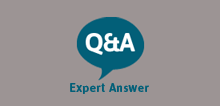Drugs and the law
Each illegal drug is put into a different 'class'; think of it like sets during GCSEs. The only difference is, instead of being smarter with each set, the drug gets more intense. It can get pretty complicated but the police won’t buy ignorance as an excuse. So, put your thinking caps on because here’s what you need to know.

Whether or not you agree with laws on drugs, it’s important to know the facts and get informed.
You can divide legal drugs into different ‘classes’ by the Misuse of Drugs Act. If you’re caught with drugs, the punishment you’ll get depends on what class the drug is. It also depends on whether you possessed, or if you intended to supply / distribute it to others. But drugs and the law can be pretty tricky, so we’re here to break it down for you.
What different classes of drugs are there?
Class A drugs (UK)
- These are the most harmful drugs; the lower down the alphabet you go, the less harmful the drugs get
- Cocaine, crack, crystal meth, ecstasy, heroin, LSD (acid), magic mushrooms, mephadone, and any class B drug prepared for injection;
- Maximum penalties: seven years in prison and/or a fine for possession. For possession or intent to distribute, it’s life imprisonment and/or a fine.
Class B drugs and the law
- Amphetamines (speed), cannabis, codeine, ketamine,
- Maximum penalties: five years in prison and/or a fine for possession, 14 years in prison and/or a fine for possession with intent to supply.
Class C drugs (UK)
- Some tranquillisers like Temazepam, anabolic steroids;
- Maximum penalties: two years in prison and/or a fine for possession, 14 years prison and/or a fine for possession with intent to supply.
A Crown Court gives these penalties. On the other hand, in a Magistrate’s court, the maximum sentence is six months imprisonment and a £5,000 fine. However, the actual sentence you’re likely to get will also depend on:
- The different classes of drugs involved;
- Any previous criminal record;
- Your personal circumstances (i.e. being a single parent);
- The attitude of the presiding magistrate/judge.
Some other drugs are controlled by the Medicines Act. While it may not be illegal to possess drugs such as prescription medicines, but supply is still an offence. If you want to find out more about drug penalties, click here.
Other drugs and the law
The Misuse of Drugs Act covers most drugs. But it doesn’t include these:
- Alcohol: There are lots of laws about alcohol, covering where it can be sold, who too, and where you can drink it.
- Solvents: It is not illegal to use, but a shopkeeper can be prosecuted for selling a solvent to under-18s who they know will use it for sniffing;
- Cigarettes: It’s illegal for a shopkeeper to knowingly sell to under-18s;
- Amyl nitrates (poppers): Amyl nitrate is a prescription-only medicine. This means that possession is not an offence, but you can’t supply it according to the Medicines Act. There are no restrictions on Butyl and Isobutyl nitrate. The stuff available in jokes and sex shops is usually butyl or isobutyl nitrate. If any amyl nitrate is present, however, then you can’t supply. There are no restrictions on use.
From May 2016, the Psychoactive Substances Act came into force. This act doesn’t replace the Misuse of Drugs Act (1971), but it makes it an offence to produce or supply legal highs. It isn’t an offence to possess them.
Drug testing on arrest
If the police arrest you and take you to the police station, you may be drugs tested. You can even be tested if you’ve been arrested for a ‘trigger offence’. Trigger offences include street robbery, burglary, car theft, handling stolen goods or supplying drugs.
It’s important to note, the cops can’t force anyone to provide a sample for testing. But it’s an offence to refuse to provide a sample without good cause.
If you test positive for Class A drugs, you’ll attend a compulsory drug assessment by specialist drugs workers. The assessment determines the extent of your drug problem. It’ll also help you into treatment and other support, even if you’re not charged with an offence.
If you fail to provide a sample or comply with a required assessment you can be fined up to £2,500 and/or up to three months in prison.
Next Steps
- Release offers free and confidential advice on everything to do with drugs and drugs law. 0845 4500 215
- Chat about this subject on our Discussion Boards.
By Nishika Melwani
Updated on 13-Aug-2021
No featured article









